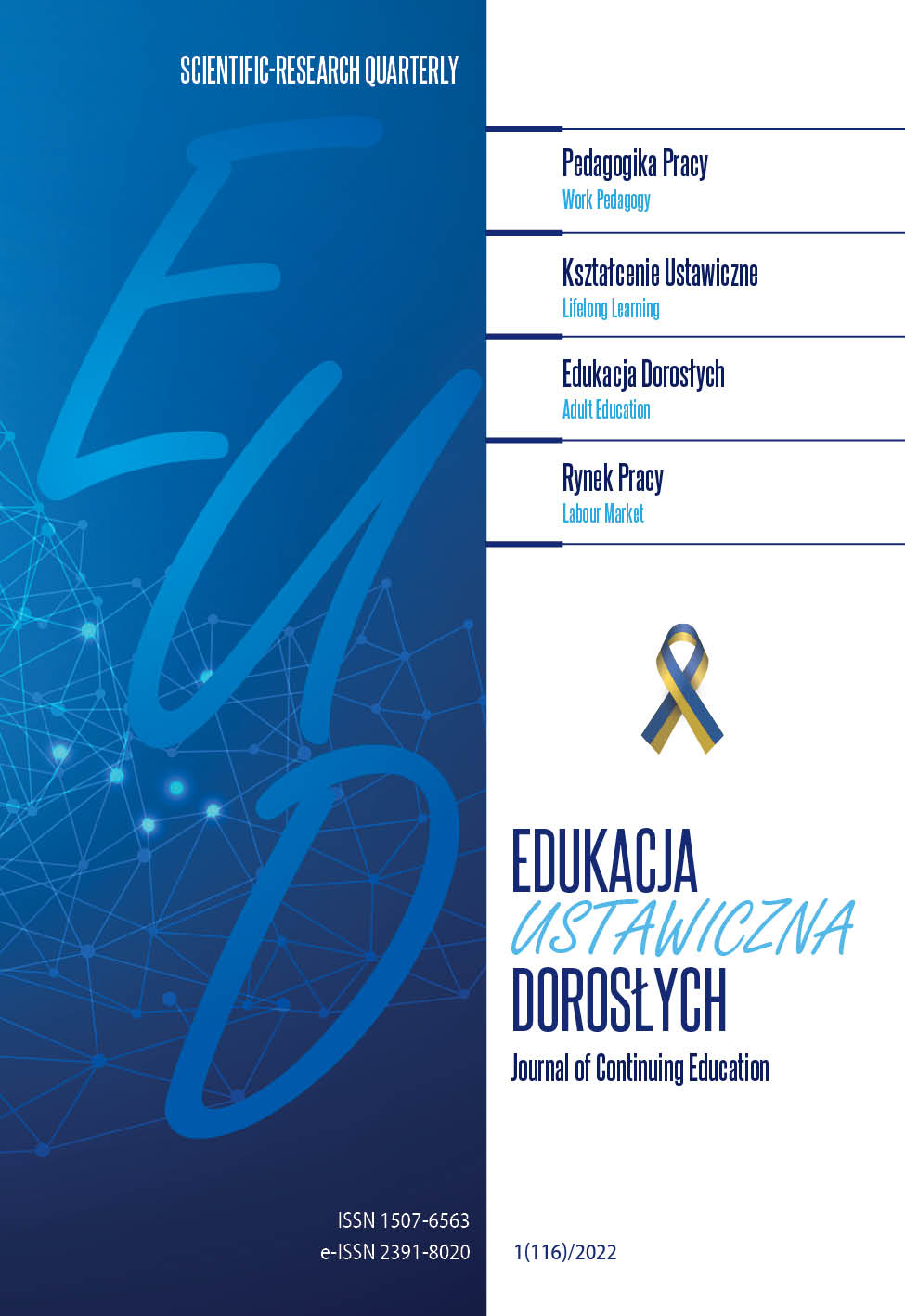VR-PLC as an answer to industry training needs in digital
competences of programming logic controllers (PLC)
VR-PLC as an answer to industry training needs in digital
competences of programming logic controllers (PLC)
Author(s): Andrzej Wojciech StępnikowskiSubject(s): Vocational Education, Adult Education
Published by: Sieć Badawcza Łukasiewicz – Instytut Technologii Eksploatacji
Keywords: continuous education of adults; training needs; virtual reality (VR); digital competence of programming logic controllers (PLC);
Summary/Abstract: Analysis of selected sources of the subject of research on PLCs show that they are animportant part of any automated shop floor operations across all manufacturing industries. Tobetter prepare industrial professionals for the challenges of the digital transformation up- andreskilling of their existing workforce is essential. Literature analysis show that there is a needfor broader searching of optimal educational methods in the area of digital competencies ofprogramming logic controllers (PLC), also in the aspect of their growing popularity. The aimof this article is to verify hipotesis that there is a need to change the model of shaping digitalcompetencies of PLC programming occurring due to technological development and newpossibilities that Virtual Reality bring for metal-machinery industry workers (in the context ofIndustry 4.0). For that this article aims to be initial contribution to research in that field showingresults of diagnostic survey conducted among managers of companies from branches of metalmachinery, automotive and electronics where is a need of PLC programming. This research wasundertaken within the project PLC-Centered VR-Training for Industry 4.0 (VR-PLC)1 realised byconsortium consisted of fallowing EIT-Manufacturing2 members: University of Ruhr-Bochum(leader) and Lithuanian Engineering Industry Association (LINPRA) and Łukasiewicz ResearchNetwork – Institute for Sustainable Technologies (Ł-ITEE)3.This article shows results of a surveyconducted on group of respondents (Łobocki 2011, pp. 175) in February 2022 among fourteenmanagers of industry companies from Poland and Lithuania. Answers collected from enterprisesassociated within Radom Metal Cluster (RKM) and Lithuanian Engineering Industry Association(LINPRA) gave us an insight to companies readiness and expectations connected with theuse of VR in employees vocational upskilling. What mattered was the focus on readiness andexpectations connected with the use of VR solutions in workers professional upskilling in thecontext of digital competncies of programming logical controllers PLC. Author of this articlecoordinates Ł-ITEE team in VR-PLC project and gained results of research will be appliedpractically while planning learning outcomes designed for workshops tob e conducted forindustry workers in Poland and Lithuania with the use of VR headsets.
Journal: Edukacja Ustawiczna Dorosłych
- Issue Year: 116/2022
- Issue No: 1
- Page Range: 149-156
- Page Count: 8
- Language: English

